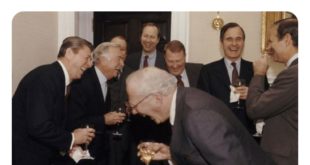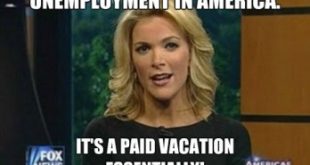What’s the use of economics? The simple question that was raised during a recent conference … was to what extent has — or should — the teaching of economics be modified … The simple answer is that the economics profession is unlikely to change. Why would economists be willing to give up much of their human capital, painstakingly nurtured for over two centuries? For macroeconomists in particular, the reaction has been to suggest that modifications of...
Read More »Twenty fallacies of modern economics
Twenty fallacies of modern economics 11) To criticise/oppose the current mathematical modelling emphasis is to adopt an antiscience stance. It is not. Mathematics is not essential (or inessential) to science; science involves using tools that are appropriate to the given task. A science of economics is perfectly feasible, and the current emphasis on mathematical modelling in economics serves, given the nature of social reality, mostly to prevent that...
Read More »Clara Mattei och åtstramningspolitiken
I veckans avsnitt av Starta Pressarna intervjuas Clara E. Mattei — författare till boken Kapitalets ordning: Hur ekonomer skapade åtstramningsdoktrinen och banade väg för fascismen (Verbal förlag, 2023) — och diskuteras hennes tes om att den ekonomiska åtstramningspolitiken historiskt växt fram som ett sätt att hålla tillbaka arbetarklassen. Som alltid på den här podden — både intressant och tankeväckande! För många konservativa och nyliberala politiker och...
Read More »Methodology — the main problem with mainstream economics
Methodology — the main problem with mainstream economics The basic problems mostly originate at the level of methodology, and in particular with the current emphasis on methods of mathematical modelling. The latter emphasis is an error given the lack of match of the methods in question to the conditions in which they are applied. So long as the critical focus remains only, or even mainly or centrally, at the level of substantive economic theory and/or...
Read More »Top 25 Heterodox Economics Books
Top 25 Heterodox Economics Books Karl Marx, Das Kapital (1867) Thorstein Veblen, The Theory of the Leisure Class (1899) Joseph Schumpeter, The Theory of Economic Development (1911) Nikolai Kondratiev, The Major Economic Cycles (1925) Gunnar Myrdal, The Political Element in the Development of Economic Theory (1930) John Maynard Keynes, The General Theory (1936) Karl Polanyi, The Great Transformation (1944) Paul Sweezy, Theory of Capitalist Development...
Read More »Keynes and Ramsey on probability
Keynes and Ramsey on probability .[embedded content] Although Blackburn on the whole gives a succinct and correct picture of Keynes’s view on probability, I think it’s necessary to somewhat qualify in what way and to what extent Keynes “lost” the debate with Frank Ramsey. In economics, it’s an indubitable fact that few mainstream neoclassical economists work within the Keynesian paradigm. All more or less subscribe to some variant of Bayesianism. And some...
Read More »Austrian economics — a methodological critique
Austrian economics — a methodological critique .[embedded content] This is a fair presentation and critique of Austrian methodology. But beware! In theoretical and methodological questions it is not always either-or. We have to be open-minded and pluralistic enough not to throw out the baby with the bath water — and fail to secure insights like this: What is the problem we wish to solve when we try to construct a rational economic order? … If we possess all...
Read More »Angus Deaton rethinking economics
Angus Deaton rethinking economics Like many others, I have recently found myself changing my mind, a discomfiting process for someone who has been a practicing economist for more than half a century. I will come to some of the substantive topics, but I start with some general failings. I do not include the corruption allegations that have become common in some debates. Even so, economists, who have prospered mightily over the past half century, might fairly...
Read More »Ideology and the politics of economic method
Ideology and the politics of economic method Political economy has long taken a keen interest in the politics of economic ideas, but considerably less attention has been paid to the politics of economic method. Method gets neglected as the technical realm within which, it is assumed economic ideas, once established, are implemented in straightforward fashion. In fact, economic method and technique are in fact key sites in the battle of economic ideas …...
Read More »‘New Keynesian’ unemployment — a paid vacation essentially!
‘New Keynesian’ unemployment — a paid vacation essentially! Franco Modigliani famously quipped that he did not think that unemployment during the Great Depression should be described, in an economic model, as a “sudden bout of contagious laziness”. Quite. For the past thirty years we have been debating whether to use classical real business cycle models (RBC), or their close cousins, modern New Keynesian (NK) models, to describe recessions. In both of these...
Read More » Heterodox
Heterodox








